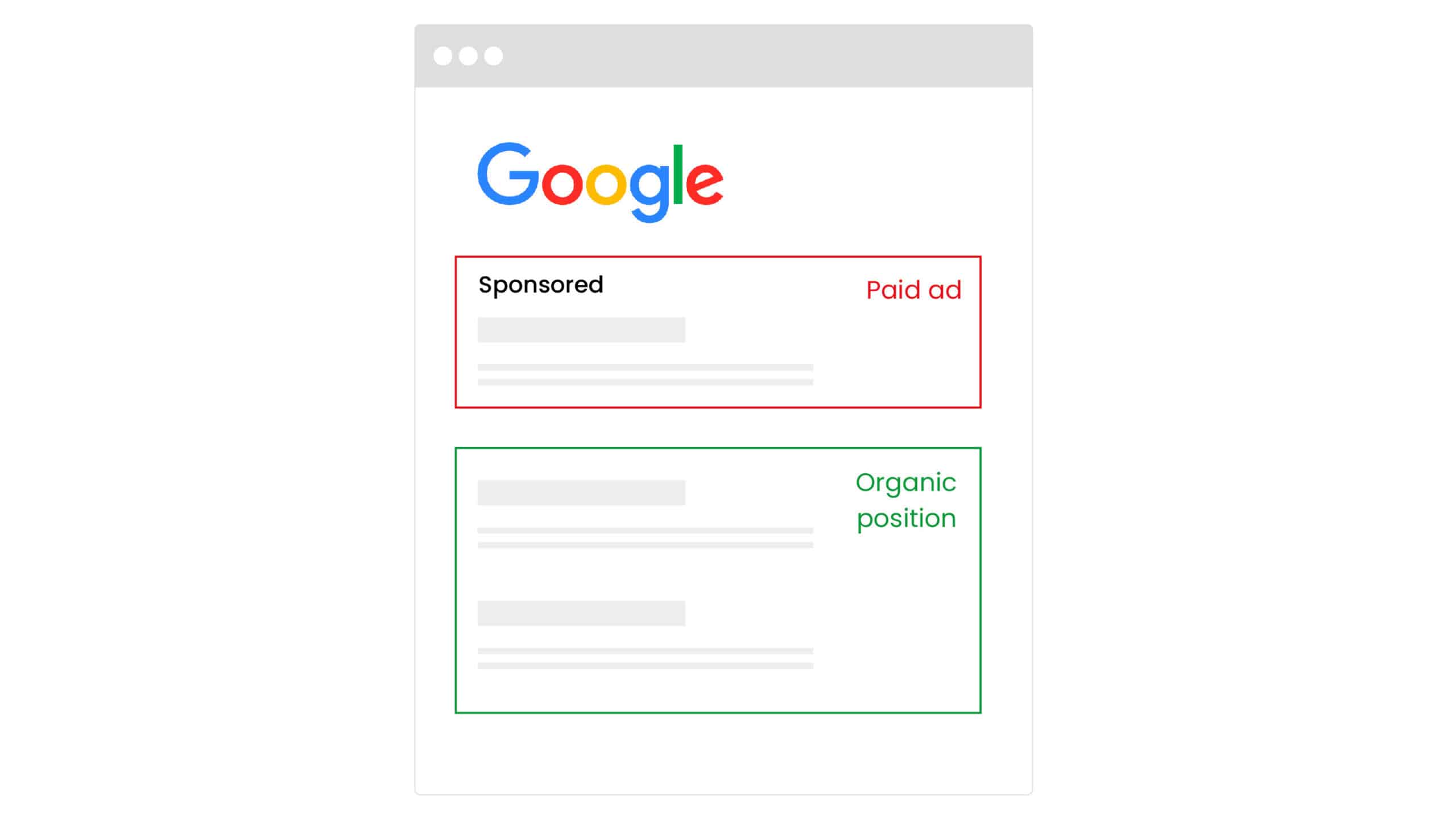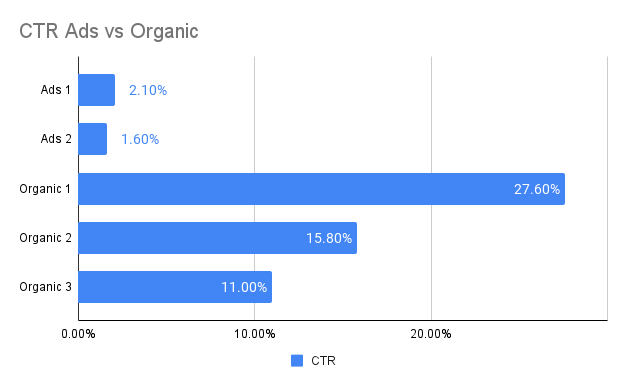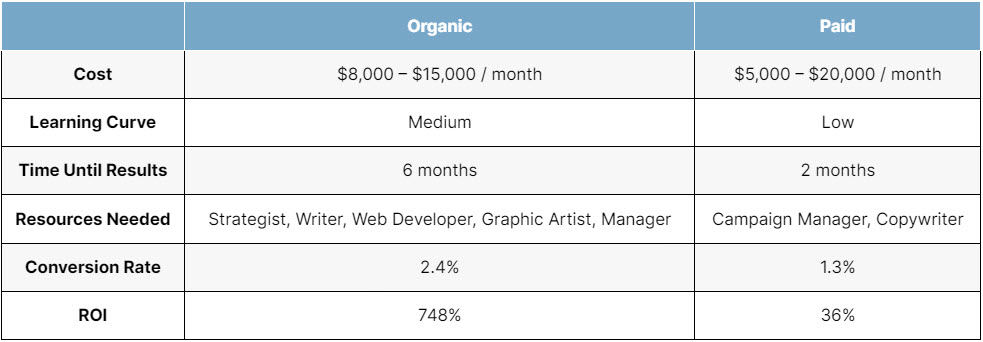When looking for answers to their questions, the majority of people use Google. Yet, few businesses devote resources to being visible on the search engine.
More precisely, many advertise on Google, but few invest in SEO (Search Engine Optimization).
Table of Contents
What is SEO?
SEO describes the various techniques you can apply to improve your visibility on Google’s organic search results—the results you can’t pay for.

Paid search results (ads) always have a “sponsored” tag, indicating that they are bought by a business. Compared to the organic search results, they have significantly lower credibility.
Studies have shown that the top organic search result has a significantly higher Click Through Rate (CTR) compared to the ads.
CTR measures how often users click on your link after viewing it on the search results page. If you receive 3 clicks after being exposed to users 100 times, you have a CTR of 3%.
CTR – Ads vs. Organic search results
When taking a closer look at the data, it becomes clear that the top organic position receives, on average, 13x more traffic compared to the top ad.

Source: Statistics compiled from Backlinko and First Page Sage
Conversions – Ads vs. Organic search results
Once you have visitors coming to your site, it is important that they do what you want them to do: shop, call, submit a form, etc. In other words, you need to convert.
An inquiry by First Page Sage showed that ads have a conversion rate of 1.3%. In comparison, organic traffic has a conversion rate of 2.4%. In this regard, organic search results are also superior.
According to their examination, SEO provides higher ROI by performing better in the long run.

Source: First Page Sage
Other upsides of SEO
Working with SEO requires more time than ads. However, it yields a number of benefits in addition to achieving higher search rankings:
User experience
You will need to adapt your site to meet the expectations and demands of your users in order to achieve a high Google ranking. Accordingly, your website will become more user-friendly, will convert better, and gain more recurring customers.
Branding
Getting other pages to mention your site and your experts positively is an important part of SEO. It’s self-evident that this is beneficial for your brand perception in general.
Sustainable results
Your traffic will halt completely if you stop paying for ad campaigns. This is not the case with SEO. Once you have achieved high positions on Google, it’s much easier to maintain them. Even if you take a break from your SEO efforts, your traffic will not disappear.
How do I get started with SEO?
SEO might be more complicated than ads, but you will be rewarded many times over if you invest resources into it. The following three areas should form the basis of your SEO work:
- Technical SEO – The page load speed of your site, its mobile functionality, if Google can find your content, etc. Read our technical SEO guide here
- On-page SEO – The structure and content of your website. You need an overview of how users search (keyword analysis) and how you can optimally help them (keyword optimization).
- Off-page SEO – Getting recognized as a credible source through external references (mainly via backlinks).
You can read our comprehensive guide on SEO here or contact us for a free consultation about your website today!


